Defend workers’ rights – against McCluskey
Ian Allinson •Unite General Secretary Len McCluskey is attempting to undermine the free movement policy agreed at Labour conference. Unite activist Ian Allinson argues for the right of working-class people to live and work where we want and explains why unions and the Labour Party are so ambivalent.
It is true that McCluskey is at pains to point out that: ‘Migrant workers are to blame for absolutely nothing in this country.’ And Unite should be commended for setting up a helpline to assist migrant workers concerned about immigration issues resulting from Brexit. But McCluskey has a history of accommodating to racist and nationalist arguments and he has, so far, succeeded in winning these positions within Unite.
Racist and nationalist views within the working class don’t just come from the media and politicians. They also have a material basis in some workers’ lives. Capitalism forces workers to compete with each other for jobs, housing and services. This competition encourages every kind of division from ‘office politics’ through divisions between manual and non-manual workers, cultures of blame between different teams and functions in a workplace, to racism and sexism.
Boundary drawing
As working-class lives are disrupted by changes in the economy and society, there is always a mixture of two responses. One is to unite to create enough collective power to address the problems we face. Another is for groups of workers to make special claims to protection. Beverly Silver calls this ‘boundary drawing’. The call for ‘British Jobs for British Workers’ or arguments for preferential housing allocation for British nationals are examples of boundary drawing. To take an older example (for equal pay day), many men, supported by their unions, used to oppose the entry of women into parts of the labour market because of the fear that it would lower (men’s) wages.
Boundary drawing can sometimes get results. Employers may even encourage it by making concessions to ‘in’ groups, as it helps them to separate workers with strong grievances from groups with more power. This is what they’re doing when they offer job security guarantees to ‘permanent’ staff, in exchange for the union putting up with terrible conditions for agency workers.
Most Leave votes came from other sources, but there were high proportions of Leave votes amongst manual workers, and workers in regions worst hit by de-industrialisation. The greater exposure of the British economy to international product markets from the 1970s was one of the drivers of de-industrialisation. Margaret Thatcher was a supporter of the EU Single Market, which was part of that process. In the early 2000s, the left led movements against the institutions of capitalist globalisation, attempting to forge an alternative popular internationalism. We didn’t succeed and the right has managed to focus some of people’s anger onto the EU on the basis of a contradictory jumble of economic nationalism and support for even more global deregulation.
McCluskey was a Remain supporter. He was horrified to discover that despite Unite activists overwhelmingly backing Remain, a high proportion of Unite members voted Leave. He has accepted the Labour right’s explanation for this. They argue that it is necessary to accommodate to ‘legitimate concerns’ about immigration held by the ‘white working class’ (as if such a thing had ever existed). McCluskey has since been trying to reconcile this with his anti-racist instincts with a fudge that claims to defend migrants while restricting employers’ ability to hire them.
Immigration controls increase exploitation
McCluskey argues that allowing free movement in a deregulated labour market benefits employers and weakens working class power by making it hard for unions to control the labour supply.
But this argument relies on boundary drawing. It only considers one part of the labour market – the bit in which white British workers compete. It seeks to improve their bargaining power by restricting who can be hired into those jobs, ignoring the impact on other parts of the labour market.
Denying a Polish or Syrian worker the ability to work legally in the UK doesn’t mean they don’t need to work. It forces them to compete in other parts of the labour market – abroad or illegally in the UK. Closing down routes to migrate and work legally forces migrants into taking life-threatening risks to get here, denies them access to legal rights at work and makes it harder for them to change jobs. It makes migrants vulnerable to employer threats, deters them from seeking advice and support and makes it harder for them to organise.
Denying workers the right to work legally doesn’t prevent exploitation – it provides the most fertile conditions for it. Rather than avoiding white British workers being ‘undercut’, it guarantees it. The regimes needed to police who can work legally also generate a hostile environment for people of colour even if they were born here, stoking racist divisions.
Sectional demands
There is a structural reason why unions and the Labour Party are susceptible to boundary drawing arguments. A union doesn’t organise the entire working class – its membership is bounded by factors including nation, industry, occupation and employer, not to mention its failures to organise people it could. Union structures reflect the contours of capitalist production.
Unions therefore have ‘sectionalism’ built in – the tendency to reflect the narrow short-term interests of particular groups of workers rather than the class as a whole. General Secretaries managing decline are the most susceptible to this, in contrast to unions which are trying to grow aggressively by appealing beyond their existing membership. .
The unions’ traditional role in the Labour Party has been to act as a counter-weight if the membership becomes too left-wing for the leadership. This role has returned after a break under New Labour.
But Labour’s tendency towards boundary-drawing doesn’t just come from the unions, but also its relationship to the state. As the provider one of British capitalism’s alternative management-teams, the Labour Party has deep connections with the British state at national and local level and aspires to run it. This has always led to Labour ideology being a hybrid of nation and class.
No real gains without unity
We have seen that McCluskey’s boundary-drawing approach doesn’t benefit migrant workers, but can it help the ‘white working class’ whose concerns he is so alive to?
The most frequent response you hear in the liberal media is that immigration boosts the economy and doesn’t lower wages. There is some research to back this up. However, it is a weak argument because it is based on averages. It will never convince someone who doesn’t feel they are benefiting from the boosted economy, who lacks a decent job or home while they see others doing better.
It is possible that excluding migrants from the legal labour market could raise wages for some white workers for a time, just as it is possible that excluding women from skilled jobs in manufacturing may have benefited some men for a while. But boundary-drawing can only ever achieve temporary and limited gains for some people at the expense of others. We cannot win decent jobs and housing without unity that includes migrants.
The right must be laughing loudly when they see much of the left engaged in culture wars where we take sides between educated younger workers in big multicultural cities and less educated older workers in deindustrialised towns. The job of the left is to unite both of them.
Migrants have played a leading role in many recent struggles, such as the strikes organised by the United Voices of the World (UVW) micro-union. If we want more of this in Unite we need to demonstrate that our union can be trusted to support migrant workers whatever their legal status. McCluskey’s comments seriously undermine these efforts.
https://twitter.com/UVWunion/status/1194641976974618626
Democracy
What makes McCluskey’s remarks even more outrageous is that he is arguing for the Labour leadership to ignore policy passed at Labour Party conference with Unite support. Corbyn has tried to make Labour more democratic, but there were already worries that the Labour leadership would revert to a more traditional approach, as suggested by Diane Abbott’s comments.
Neither McCluskey nor Abbott are motivated by racism – they are conceding ground to racists for electoral reasons. But pandering to the racists doesn’t win them over. We have already seen a huge shift in the public debate since Corbyn replaced Miliband and his racist mugs. You can’t win an argument without having it – we need to push Labour’s manifesto as far to the left as we can. But we need to argue and campaign for workers’ rights to live and work where we want whatever the manifesto says. Labour’s conference policy makes that easier.
We need to get this right. This debate is only going to get more important as the climate crisis forces more people to migrate as a result of droughts, famines, floods, fires and wars.



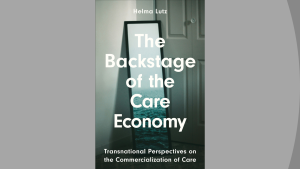


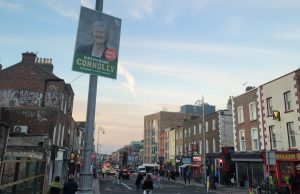



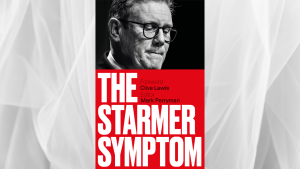
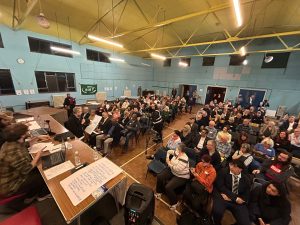
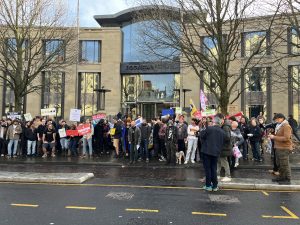
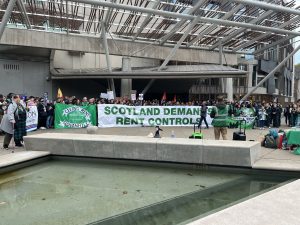
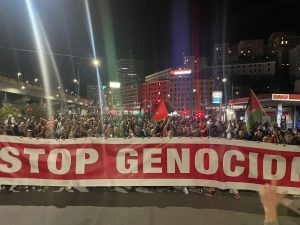
2 comments
A great response to McCluskey from Ewa Jasiewicz in the Guardian:
https://www.theguardian.com/commentisfree/2019/nov/15/union-migrant-workers-len-mccluskey-working-class